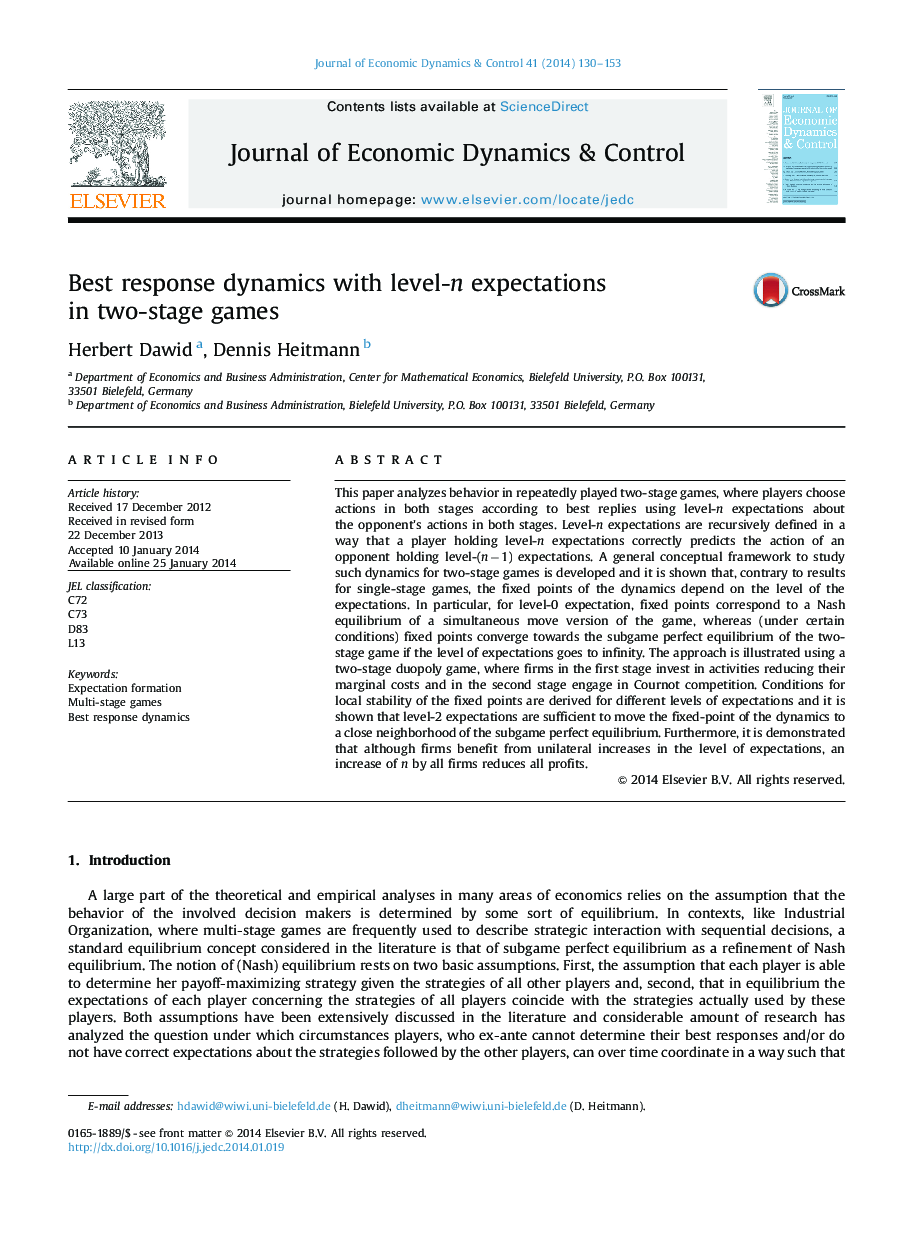| Article ID | Journal | Published Year | Pages | File Type |
|---|---|---|---|---|
| 5098485 | Journal of Economic Dynamics and Control | 2014 | 24 Pages |
Abstract
This paper analyzes behavior in repeatedly played two-stage games, where players choose actions in both stages according to best replies using level-n expectations about the opponent׳s actions in both stages. Level-n expectations are recursively defined in a way that a player holding level-n expectations correctly predicts the action of an opponent holding level-(nâ1) expectations. A general conceptual framework to study such dynamics for two-stage games is developed and it is shown that, contrary to results for single-stage games, the fixed points of the dynamics depend on the level of the expectations. In particular, for level-0 expectation, fixed points correspond to a Nash equilibrium of a simultaneous move version of the game, whereas (under certain conditions) fixed points converge towards the subgame perfect equilibrium of the two-stage game if the level of expectations goes to infinity. The approach is illustrated using a two-stage duopoly game, where firms in the first stage invest in activities reducing their marginal costs and in the second stage engage in Cournot competition. Conditions for local stability of the fixed points are derived for different levels of expectations and it is shown that level-2 expectations are sufficient to move the fixed-point of the dynamics to a close neighborhood of the subgame perfect equilibrium. Furthermore, it is demonstrated that although firms benefit from unilateral increases in the level of expectations, an increase of n by all firms reduces all profits.
Related Topics
Physical Sciences and Engineering
Mathematics
Control and Optimization
Authors
Herbert Dawid, Dennis Heitmann,
